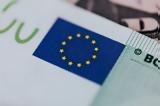How Transparent is EU Funding for NGOs? Auditors Set to Reveal Findings
Non-governmental and civil society organizations play a crucial role in fostering citizen participation in EU policymaking through transparent and continuous dialogue. But just how transparent is EU funding for these NGOs?
After a year-long investigation, auditors are finalizing a report on the subject. At the heart of public transparency
This means not only disclosing who receives EU funds, for what purpose, and why, but also how the funds are spent, the amounts involved, and whether recipients comply with EU values. Public interest in strengthening transparency requirements for EU-funded NGOs has grown significantly since the 2022 Qatargate scandal, with renewed political debate bringing the issue back into focus.
The term "NGO" has been widely used for years, yet there has been no universally accepted definition at the international level. In an effort to enhance transparency, the EU officially defined an NGO in 2024 as "a voluntary, independent from government, non-profit organization, which is not a political party or a trade union." However, definitions still vary across EU member states.
Auditors have been assessing the transparency of EU funding granted to NGOs across key internal policy areas, including cohesion, research, migration, and the environment, for the 2021-2023 period. Their main focus has been on whether the European Commission, its implementing partners, and member states have collected and disclosed reliable data on NGO funding. In addition to evaluating whether transparency requirements have been properly assessed, auditors have also examined whether NGO recipients have adhered to EU values.
The renewed audit comes at a critical time for three main reasons. The European Parliament has been pushing for greater transparency and accountability regarding EU funding. NGOs play an increasingly important role in shaping democratic policy, making it essential to ensure their funding is handled transparently. Furthermore, the EU’s 2024 Financial Regulation aims to improve oversight of NGO recipients of EU funds.
NGOs receive most of their EU funding through grants and must comply with transparency regulations that apply to all recipients. Auditors have examined the European Commission, selected EU and national agencies, and managing authorities in Germany, Spain, and Sweden.
The final report is set to be published on April 7 on the European Court of Auditors (ECA) website.
#ENGLISH_EDITION #EUROPE- Δημοφιλέστερες Ειδήσεις Κατηγορίας Ειδήσεις
- Καρκίνος: 3 συμπτώματα που σας κρατούν ξύπνιους τα βράδια – Πώς να τα αναγνωρίσετε
- Βασίλης Καλογήρου: «Στη θέση του συνοδηγού δεν υπήρχε κανένας» – Επιμένει μάρτυρας για όσα κατέθεσε
- Η στιγμή που ο Ζελένσκι αποχωρεί άρον άρον από τον Λευκό Οίκο μετά την επίθεση Τραμπ - Δείτε βίντεο
- Δεν έχει πάτο το βαρέλι
- «Αντίο αγαπημένε μου…»: Η συγκινητική ανάρτηση της Εύης Βατίδου για την απώλεια του Αλέξη Κούγια
- Μητροπολίτης Κυθήρων Σεραφείμ, Καλή ἡ ἑνότης καί ἡ ἕνωσις τῶν χριστιανῶν ἀλλά προϋποθέτει ἀπαλλαγήν ἀπό τήν πλάνην καί τήν αἵρεσιν
- Αγάπη Πολίτη: Με φουλάρι Louis Vuitton στην πρώτη δημόσια εμφάνιση μετά τον γάμο της κόρης της, Χρυσής Βαρδινογιάννη
- Σε αυτό το μέρος της Ελλάδας χειροποίητα αερόστατα υψώνονται στη θέση των χαρταετών
- L’Étape Greece by Tour de France: Η Αρχαία Ολυμπία γίνεται παγκόσμιος ποδηλατικός προορισμός
- Εύη Βατίδου για Αλέξη Κούγια: «Σε ευχαριστώ για τις στιγμές που μας χάρισες»
- Δημοφιλέστερες Ειδήσεις Dikaiologitika
- How Transparent is EU Funding for NGOs? Auditors Set to Reveal Findings
- Greece Struggles to Contain Electricity Price Surge as Subsidy Costs Rise
- Investors Unfazed by Tempi Protests: Greece’s Markets Brush Off Political Uncertainty
- Μπροστά σε ένα νέο 2011; - Η χώρα αλλάζει σελίδα
- Πάει - ξανά - πίσω ο ανασχηματισμός
- Τίποτα δεν είναι πια το ίδιο
- Τέμπη: Πόσος κόσμος συγκεντρώθηκε στο συλλαλητήριο της Αθήνας; Ειδική εφαρμογή απαντά
- Ισραήλ-Χαμάς: Ολοκληρώνεται η πρώτη φάση της εκεχειρίας - Ποιά η συνέχεια
- Τραμπ - Ζελένσκι: Τι θα γίνει μετά το πρωτοφανές ριάλιτι μπροστά στις κάμερες
- Το τελευταίο «χαρτί» η λαϊκή ετυμηγορία

- Τελευταία Νέα Dikaiologitika
- How Transparent is EU Funding for NGOs? Auditors Set to Reveal Findings
- Investors Unfazed by Tempi Protests: Greece’s Markets Brush Off Political Uncertainty
- Greece Struggles to Contain Electricity Price Surge as Subsidy Costs Rise
- The Last Resort: The People's Verdict
- Συνταγή: Πατατοσαλάτα νηστίσιμη για το τραπέζι της Καθαράς Δευτέρας
- Και μια και δυο και ...τρεις Προανακριτικές!
- Πόλεμος στην Ουκρανία: Η Ευρώπη σύμμαχος του Ζελένσι, η Ρωσία επευφημεί τον Τραμπ
- Έτοιμα τα εκκαθαριστικά του ΕΝΦΙΑ 2025 - Πότε η πρώτη πληρωμή
- Ισραήλ-Χαμάς: Ολοκληρώνεται η πρώτη φάση της εκεχειρίας - Ποιά η συνέχεια
- Πάει - ξανά - πίσω ο ανασχηματισμός
- Τελευταία Νέα Κατηγορίας Ειδήσεις
- Χανιά: Τουρνουά σκάκι στο Τσατσαρωνάκειο Πολύκεντρο
- Βάλτε τέλος στις εμβοές τώρα με φυσικό τρόπο
- Τροχαίο δυστύχημα στους Αγίους Αναργύρους: Νεκρός 51χρονος συνοδηγός ΙΧ, τραυματίστηκε ο οδηγός
- ΗΠΑ: Η Ουάσινγκτον ενέκρινε την πώληση στο Ισραήλ πυρομαχικών και εκσκαφέων αξίας 3 δισεκ. δολαρίων
- Η επική αντίδραση της Ουκρανής πρέσβειρας την ώρα του καβγά Τραμπ - Ζελένσκι έγινε viral
- Ποιους 18άρηδες καλεί φέτος η εφορία – Πώς θα αποκτήσουν κωδικούς πρόσβασης στην πλατφόρμα της ΑΑΔΕ
- ΗΠΑ: Εγκρίθηκε η πώληση πυρομαχικών και εκσκαφέων στο Ισραήλ αξίας 3 δισεκ. δολαρίων
- Εύη Βατίδου για Αλέξη Κούγια: «Θα ζεις πάντα μέσα στις καρδιές μας»
- Εύη Βατίδου για Αλέξη Κούγια: «Δε θα σε ξεχάσω ποτέ, σε ευχαριστώ για τη σοφία και τις στιγμές που μας χάρισες»
- Με αναπνευστική υποστήριξη ο πάπας Φραγκίσκος - Ανταποκρίθηκε στην θεραπεία μετά την επιδείνωση



